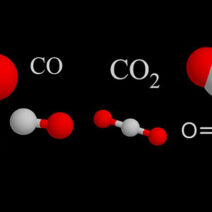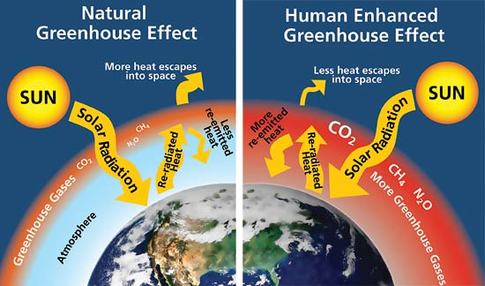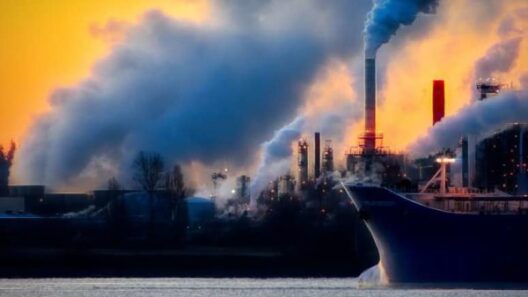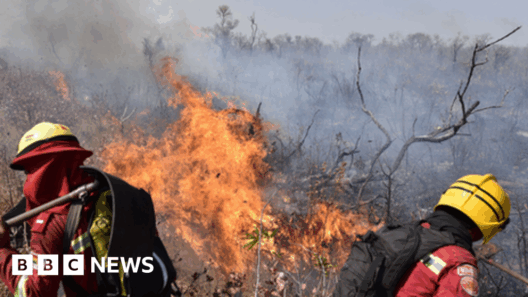Does aviation have a notable effect on global warming? This question is more than a mere inquiry; it embodies a challenge for modern civilization. As air travel becomes increasingly accessible, its environmental implications warrant a closer examination. One might wonder, is leisure travel worth the repercussions on our planet? To comprehend the magnitude of aviation’s impact on climate change, we must delve into various facets of this multifaceted issue.
The aviation industry contributes significantly to greenhouse gas emissions. Estimates suggest that global aviation accounts for approximately 2-3% of total human-induced emissions. While this percentage may seem modest at first glance, it’s essential to recognize the rapid expansion of air travel. The number of flights worldwide is projected to double over the next two decades, which could lead to an even larger environmental footprint. Consequently, the potential for the industry’s growth to exacerbate climate change is an alarming reality.
When considering the environmental impact of aviation, it is vital to comprehend the specific greenhouse gases involved. The primary gas emitted during flight operations is carbon dioxide (CO2), produced when fossil fuels are burned. However, other gaseous byproducts such as nitrogen oxides (NOx), water vapor, and particulate matter play a crucial role in climate dynamics as well. NOx can lead to the formation of ozone in the atmosphere, a potent greenhouse gas that increases warming. Simultaneously, water vapor from aircraft emissions can contrail, creating cirrus clouds that have a warming effect. Thus, the cumulative effect of these emissions significantly alters the Earth’s climate system.
One of the perplexing aspects of aviation’s influence on global warming is altitude. Aircraft usually operate at cruising altitudes where environmental conditions differ drastically from those on the ground. At higher altitudes, the atmospheric layers are less dense, and the interaction of emissions with the atmosphere varies. Consequently, scientists have produced models estimating that the impact of air travel on global warming could be up to three times greater than that of ground-based emissions due to these altitude-dependent processes. This phenomenon raises the question: are we truly aware of the totality of aviation’s environmental consequences?
Moreover, the overall efficiency of modern aircraft is a double-edged sword. Technological advances have led to more fuel-efficient engines and lighter materials, which ostensibly reduce CO2 emissions per passenger mile. However, increased efficiency often correlates with lower costs for airlines and passengers, leading to an increase in flight frequency and overall air travel demand. Ultimately, this could result in a scenario where enhancements in fuel efficiency merely facilitate greater amounts of air travel, negating any environmental benefits. As such, the industry faces a paradox: improved efficiency could inadvertently contribute to more global warming.
To truly grasp the full scope of aviation’s environmental impact, it’s crucial to consider its indirect effects. Air travel not only generates greenhouse gases but also facilitates societal behaviors contributing to climate change. For instance, rapid tourism growth can lead to the development of infrastructure that further exacerbates carbon emissions, such as hotels, roads, and airports. Additionally, the industry is intricately linked with global commerce—a vital factor in the expansion of various sectors that rely heavily on fossil fuels. Thus, the interplay between aviation and economic development raises a critical challenge: how to balance growth while mitigating the deleterious effects on the environment?
Regulation and policy responses also play a significant role in addressing aviation’s impact on global warming. Various international agreements, such as the Paris Agreement, highlight the necessity of reducing overall emissions to combat climate change. Within the aviation sector, organizations such as the International Air Transport Association (IATA) have set ambitious targets to achieve carbon neutrality by 2050. While such goals are commendable, the actual implementation of effective measures remains the crux of the issue. Better fuel standards, carbon offsetting programs, and the adoption of sustainable aviation fuels (SAFs) are merely starting points. However, these developments demand substantial investment and collaboration among stakeholders.
Public awareness and consumer behavior are integral components in addressing the environmental ramifications of air travel. An informed customer base can champion sustainable practices by choosing airlines with robust environmental commitments or supporting rail alternatives when feasible. Advocacy for policies promoting carbon pricing, renewable energy sources, and other measures can solidify the consumer’s role in mitigating aviation’s climate impact. As the world becomes increasingly interconnected, the cumulative power of conscientious consumers could significantly influence industry standards.
In the face of climate change, it is imperative to engage in a dialogue that transcends simplistic notions of blame. Rather than viewing aviation as an adversary, one could reframe the issue as an opportunity for innovation and collaboration. The aviation industry must evolve, embracing sustainable technologies and practices while remaining accountable for its emissions. The challenge lies in fostering a culture of responsibility and foresight that encompasses not just individual choices but also corporate ethos and global policies.
Ultimately, the question remains: does aviation have a big effect on global warming? The answer is multifaceted. The industry undeniably contributes to greenhouse gas emissions, and its growth poses significant challenges for climate action. However, through collective effort, proactive policies, and informed consumer choices, the aviation sector can pivot toward sustainability. The future of air travel need not lead to ecological degradation; with determination and innovation, it could very well become a testament to how humanity can rise to the occasion in protecting our planet for generations to come.







